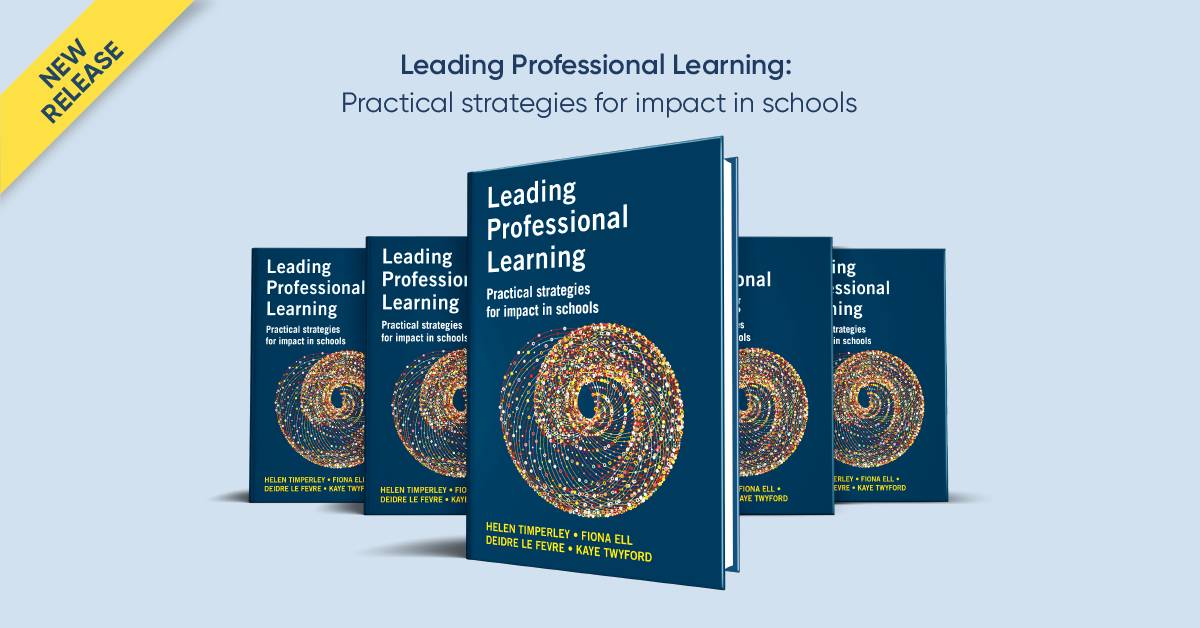
New book guides principals on leading PD for school improvement
ACER news 2 Dec 2019 4 minute readA new book from the Australian Council for Educational Research’s (ACER) publishing division, ACER Press, helps school leaders cut through the often confusing and conflicting advice on effecting school improvement through professional development.
Leading Professional Learning: Practical Strategies for Impact in Schools, by educators and researchers Helen Timperley, Fiona Ell, Deidre Le Fevre and Kaye Twyford, is based on years of research and development work in schools and education systems in Australia and New Zealand. It addresses the most common and complex challenges principals face in leading professional development as part of a school improvement program.
School improvement is an important item on the international education agenda. While several practical tools – such as the National School Improvement Tool (ACER and the Queensland Department of Education) and the Principal Performance Improvement Tool (ACER and The Western Australian Department of Education) – exist to help Australian principals improve their schools, applying their concepts in the reality of the school environment can be a challenge.
“Our extensive experience in school improvement work has shown us that trying to figure out how to keep what’s working while changing what’s not can be extremely complex for school leaders working in an increasingly challenging environment,” says co-author Helen Timperley PhD, Professor Emeritus in Education at The University of Auckland. “But one constant emerges from the research: professional development and learning that is appropriate, and undertaken in the right conditions, can positively impact student outcomes and contribute to overall school improvement.
“Leading Professional Learning was written to help school leaders identify and address specific issues found, almost inevitably, to accompany the learning and improvement process.”
Each chapter discusses a challenge typically associated with the in-practice application of school improvement tools – such as creating a learning culture, the use of evidence, and addressing equity issues and unconscious bias – in the context of decision-making about professional development.
Authors Timperley, Ell, Le Fevre and Twyford have worked in schools and with education systems to improve teaching and learning for many years, and each brings a unique perspective – on improving student wellbeing, for example, or experience in organisational change – to the book. ACER Press publisher Elisa Webb said the book was a much-needed resource for school leaders.
“School improvement measures cannot be undertaken in isolation – each school is working in a unique context and there are so many factors contributing to the complexity of the task,” Ms Webb said. “The authors acknowledge this, and humanise the common challenges school leaders face in what can sometimes be quite a bureaucratic process.
“Leading Professional Learning reconnects school improvement with successful, practical professional development strategies that can make a lasting impact on the learning outcomes of students.”
The book is available online and instore at ACER Bookshops.
